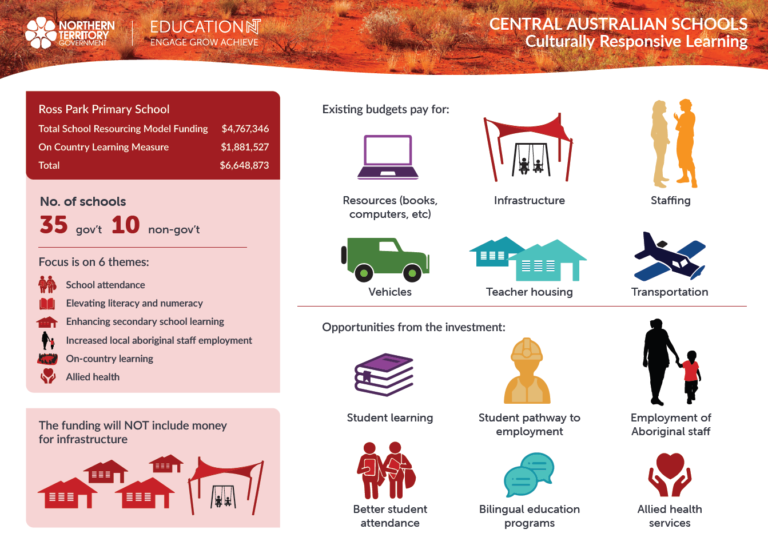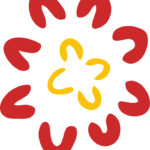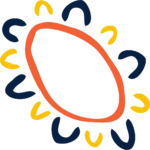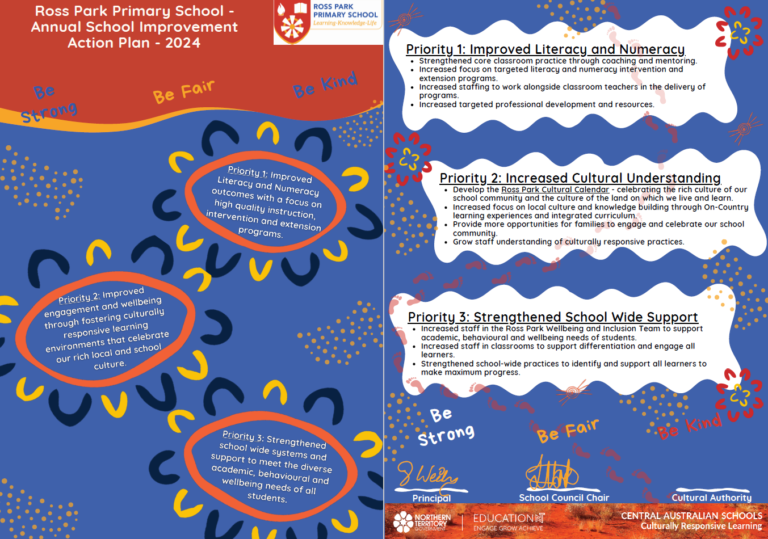School Overview
Established in 1961, Ross Park is the oldest operating government primary school in Alice Springs. Situated in the Old Eastside area of the town within large and well-established, shady grounds. Ross Park School is inclusive, friendly and supportive and parent, student and community feedback is highly valued. Ross Park School welcomes children from Transition to Year 6.
Students come from a large variety of cultural backgrounds, all of which add to the richness and diversity of our school community. We continuously value and strengthen our strong links to the local community, through a range of events, opportunities and experiences.
We take pride in our highly qualified, professional staff. We have an average annual student attendance of over 90% and a high percentage of students who achieve well above national minimum standards in literacy and numeracy. Our emphasis on the creative arts and physical education brings an added dimension to the school. We are recognised in the community for the excellent opportunities provided to students.
Rona Glynn Preschool, in nearby McKay St, forms part of the school complex, catering for children turning 4 by June 30th. Two groups attend preschool for 15 hours per week per group.
Enrolment in Ross Park is highly sought after, and a Priority Enrolment Policy is in place.
Vision, Values and Aims
Vision
At Ross Park, together we thrive in safe and supportive learning environments, where high quality practice empowers learners to be Strong, Fair and Kind.
Values
- Be Strong
- Be Fair
- Be Kind
Aims
- To optimise the individual potential, creativity and academic excellence of each student by promoting the effective development and delivery of the curriculum
- To advocate for and oversee the recruitment and retention of quality school staff
- To encourage all members of the school community to demonstrate the school values in the school and in the wider community
- To ensure an inclusive school learning community through effective partnerships between families, staff, students and the broader community
- To create a positive and challenging learning environment that fosters self-confidence, resilience and responsibility.
Students will develop a growth mindset and utilise personal strengths to help them grow and learn. Feedback is utilised as an essential practice for staff and students to strengthen understanding and to identify what they need to do next to improve.
Annual School Improvement Plan
Annual School Improvement Plan
The focus for improvement at Ross Park for 2024 has been developed through the synthesis of a range of data sources and consultation processes.
The focus for Strengthening Instruction will consist of an inquiry cycle into the school’s Instructional Model, with reference to contemporary research into high impact teaching strategies, and excellence in pedagogical practice. This focus will incorporate the teaching models of RWI and Learning Through Doing, and will create a broader understanding and proficiency in high-quality pedagogical practice, and data literacy, consistently across the school. Additional components to this goal will include the development of a highly capable team, to professional learning, targeted intervention, extension and wellbeing strategies implemented systematically across the school.
The Ross Park Engagement focus for improvement will focus on deliberately designing strategies that aim to improve outcomes through the development of On-Country learning initiatives that foster culturally responsive learning environments and invite Indigenous Language and Culture (ILC) as well as the school community’s languages and cultures into the day-to-day delivery of curriculum, strengthening students’ cultural understanding and continuing to improve the future citizens they become, with a focus in three key areas: actions (through intentional curriculum), behaviours (through student perceptions), and relationships (through community connections).

Policies
Policies





